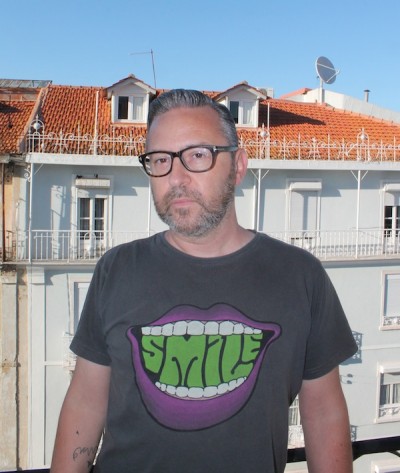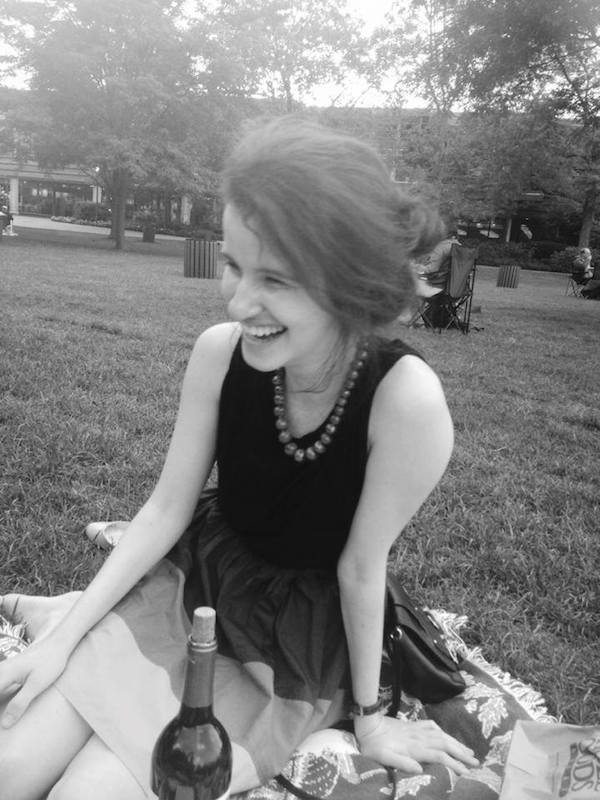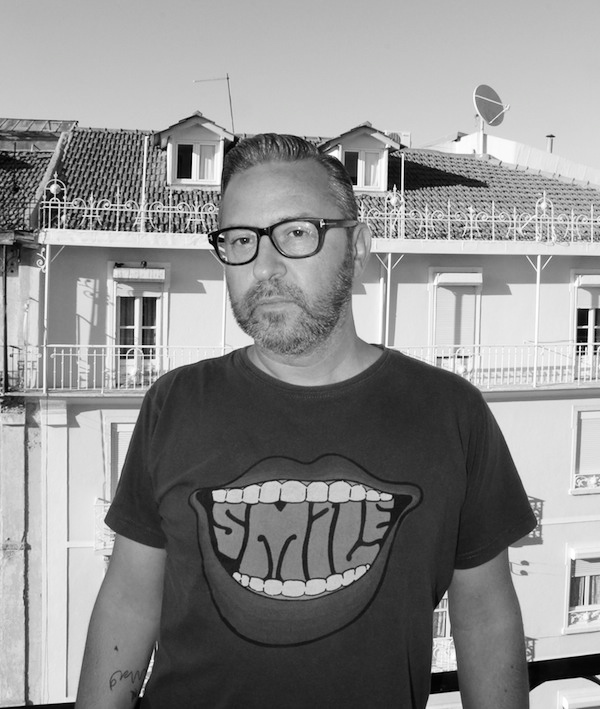Limitless adventures in thought
MICHAEL LANGAN is a former performance poet, constantly struggling novelist, and current memoirist. He has lectured and taught creative writing at Liverpool John Moores University and Greenwich University London for fifteen years and now writes on visual art, literature, film and dance. He also works as a mentor and reader for The Literary Consultancy. He is lucky enough to live in Lisbon with the man he loves. Michael is also currently Arts Editor of Polari magazine, the online LGBT arts and culture review.
In his monthly column Notes Towards Uncertainty, he explores his decision to give up his secure teaching job to concentrate on his own writing life. He had achieved a lot of things in his academic career, but not the stuff of his dreams. Follow Michael over the coming months as he tells the story of how and why he took this leap of faith and the rewards and difficulties it presents.
Limitless Adventures in Thought by Michael Langan
When I began writing this column for Seymour, I described myself as someone who had achieved certain things in my academic career, but not the stuff of my dreams. My dreams were about writing, not teaching. They are dreams of success in writing, which means creating something that connects with people, affects them in the same way that I have been affected by the writing of others, and leaving something behind after you’ve gone. There’s only one word I dream of having on my gravestone: Writer.
But what does it really mean to follow your dreams? Given the unique nature of each life and if we accept, as Kundera writes, that ‘the first rehearsal for life is life itself?’ following your dreams becomes a vital mission for all of us. If we “follow” our dreams it implies that they are often somehow beyond us and that we lag behind them, arms outstretched. In our daily lives we’re surrounded and bombarded by messages that exhort us to live the dream – just be it, do it, live it, love it – which is mainly brought about by acquiring consumer goods, large and small. These, and the new technologies that drive and enable them, are what we are meant to dream of. At the same time, there are plenty of people in the world whose dreams consist of simply getting from one day to another, from one meal to the next; a dream of survival.
Is it silly, or naïve, to dream of a world in which this is not the case? Or do we accept too easily the supposed unreality of our dreams, even if they offer a more truthful expression of how we feel about ourselves in the world?
The great Portuguese Nobel Prize-winning novelist, José Saramago, had a dream, a “simple belief” that the world could easily be made better:
This belief leads me to say that I do not like the world in which I live. The worldwide revolution I envision – please pardon my utopian vision – would be one of goodness. If two of us woke up and said, Today, I will harm no one, and the next day said it again, and actually lived by those words, the world would change in a short time. Of course, this is nonsense – this will never happen.
Nonsense it may well be, but what if we didn’t have people who dreamed in this way? Equality, human rights, peace, harmony with the environment – these are all dreams we have, dreams we should never let slip from our minds. Simple messages of the “I have a dream…” variety can often sound naïve, but between naivety and cynicism, I choose naivety.
Our dreams, even in the pre-Freudian era, have always been considered significant and occur in all myth systems and all religions as prophecies, predictions, revelations, messages and warnings. In my creative life I have hardly ever written directly from my dreams, transcribing things that happen or describing people who appear in them. Dreams interest me much more as a conduit for suppressed desires, hidden secrets, strange longings and unacknowledged fears. Of course, these are often the essential elements for stories and narratives, and for the characters’ motivations within them. The unfolding revelation of these fuels the motor of plot and drives the protagonists’ thoughts, feelings and actions. In that sense, dreaming and storytelling become one and the same. The best and rarest moments of writing are, for me, like those dreams of flying, the kind of dream that waking up from is a small tragedy.
After Freud, dreams came to be seen, not as prophecies or communications from outside forces, but as messages from within. Even if you don’t remember them clearly, dreams can haunt you throughout the day, harass your consciousness like intermittent strobe flashes, illuminating fragments of your thoughts and feelings, somewhere over there. Other people’s dreams can be very boring (unless you’re in them), but your own never are, because they always tell you something about yourself. Like fiction, they reveal the deeper truths. In the narrative of ourselves they are the unseen plot twist, the cliff-hanger, and, most importantly, the subtext. In dreams anything is possible and even if, in life, not everything is possible, they can point the way.
The best, and often most memorable, dreams are the simplest, in which the psychic messages are most clear. They require little interpretation but can create much energy. For years I had a recurring stress dream, which first occurred as a teenager surely after a burglary at my parents’ home. In it, I am being chased by a man whose face is obscured. I run away, terrified, whimpering in my sleep like a puppy. I stumble to the ground and, just at the moment the masked man plunges a knife into me, I wake up, breathless, heart pounding. I read somewhere that you can wake yourself up in nightmares and resolved that, the next time the dream occurred I would do this. Sure enough, I was able to stop myself mid-chase, turn to confront my attacker, and shout, “You’re not real! This is a dream! Wake up! Wake up!” I was woken up by my own voice in my head, amazed that I was capable of intervening so powerfully in my subconscious. It strikes me as an act of creative will that you can do this. It enables you to break out of a pre-existing narrative and take control of your own story. I have never had the dream again.
For me, writing and living are the same thing, or they ought to be. It is only by paying great attention to ordinary living that I actually learn anything about writing – Rachel Cusk.
I have a dream of living like this but some dreams require a planned intervention. It’s a matter for therapy, for conscious effort that I make myself what I want to be, that I fight learned behaviour, learned helplessness. In thinking about, learning about, and writing about fear, you are creating a narrative, as in therapy, putting things together and forming them into something you can understand. You can intervene in that narrative, as in your dreams, and, difficult as it is, it gives you some control over your story.
If the self is a fiction, it may perhaps be the supreme fiction, the greatest achievement of human consciousness, the one that makes us human – David Lodge.
I have also written in Seymour about the current importance of re-reading for me, which is like remembering an old dream. Stories, characters, narrative landscapes reveal themselves once again, and reveal yourself to yourself once again, altered, older, afresh. D.H. Lawrence is someone whose novels mattered a lot to me when I was in my twenties and I have been reading them again with a different, more worldly, kind of passion. According to him, the novel “… can reveal the most secret places of life: for it is in the passional secret places of life, above all, that the tide of sensitive awareness needs to ebb and flow, cleansing and freshening.” In one of his essays Lawrence also wrote that the novel should be a “thought adventure” in which philosophy and emotional sympathy come together to reach “a new way of understanding.” As in dreams, anything is possible and the reading of novels helps you understand the world, people, and, crucially, yourself, a little better. So I dream of completeness of knowledge, of writing freely and without barriers, limitless adventures in thought.
M.L. 2015
Published: March 26th, 2015





